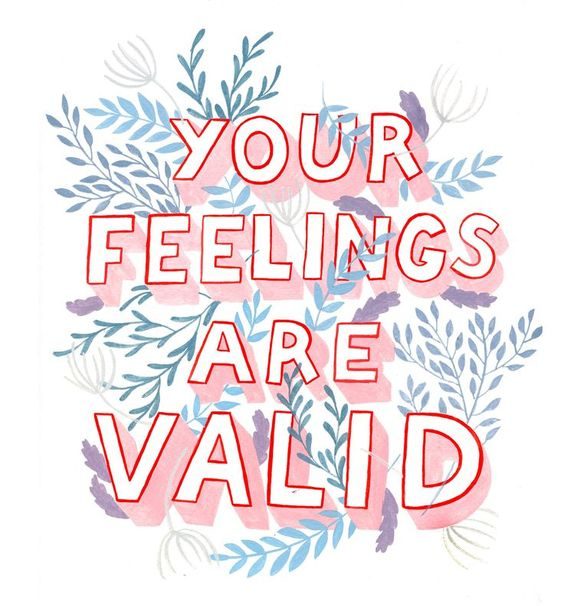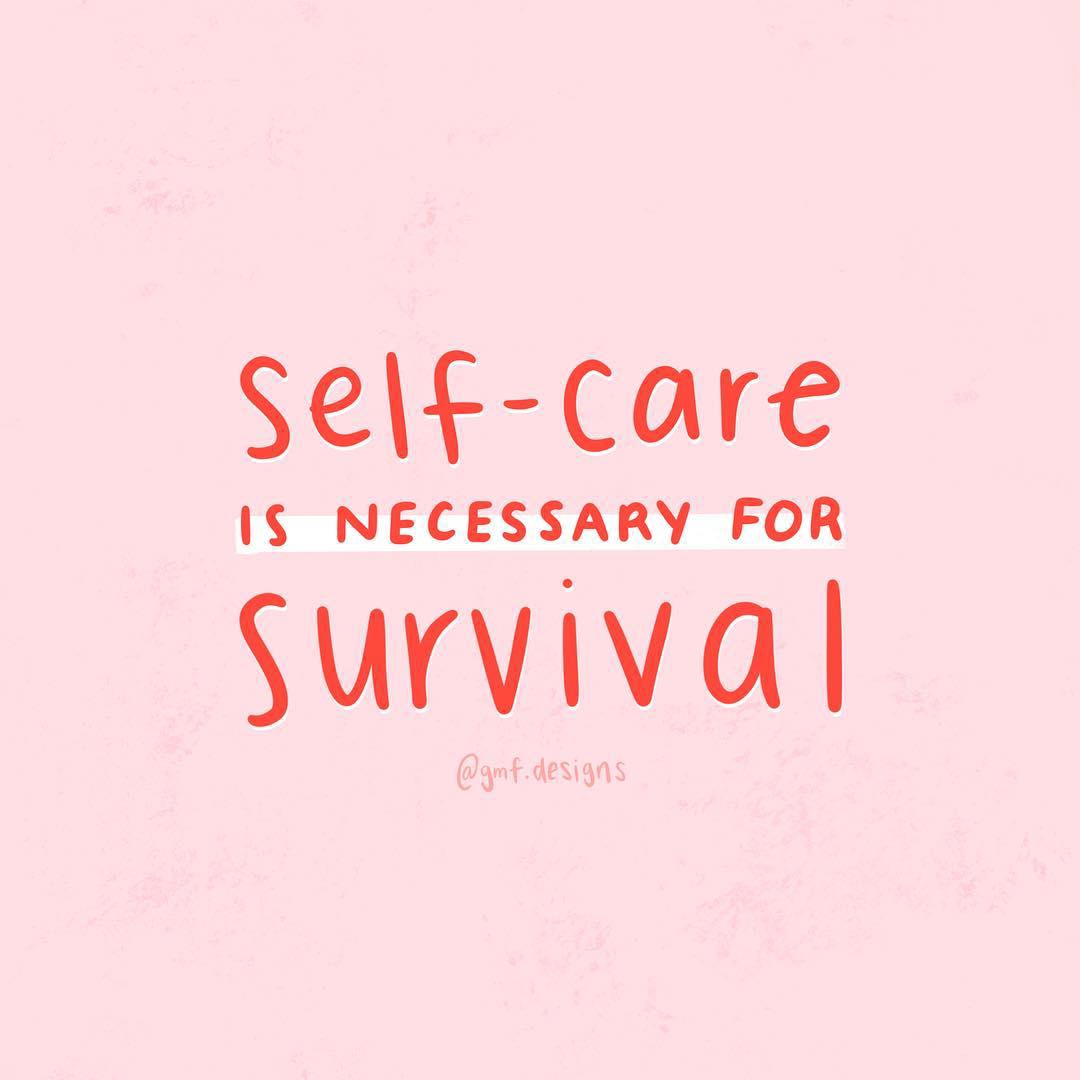
As promised, our Mental Health Awareness month collaboration with Dr. Brittany Blackmon, a.k.a. Dr. B, is here! Dr. B is an LGBTQ affirming Clinical Psychologist and the owner of the empowerment-based organization, Dr. B Cares. She has graciously used her expertise to answer some of your toughest mental-health related questions.
In this first installment, Dr. B addresses topics such as coping with a breakup, how to know if you should seek therapy, and raising children with ADHD. Read on for more!
Disclaimer: Providing psychoeducation/ answering mental health-related questions does not constitute a therapeutic (doctor-patient) relationship. All questions and answers were provided anonymously to protect the confidentiality of the participants. If you or someone you know is in crisis call 911, go to your local Emergency Room or contact the National Suicide Prevention Lifeline at 800-273-TALK (8255).
Q: I am a 40+, cis-gay woman going through a breakup from a relationship with a woman 14 years my junior and I can’t shake the sadness. Any tips on moving forward?
A: Whether you’re the one who was left broken-hearted or the one who ended the relationship, breaking up is never easy. Immediately following a breakup, you may feel sad, angry and/or lonely. While comfort from friends and family is helpful, it cannot erase the pain you’re feeling.
A breakup is the end of a relationship but it is also the beginning of a new season. Try not to let the loneliness and pain discourage you from living your life. In fact, use them as motivation to strive to live your best life.
Below are tips for healing and personal growth that can offer you some guidance on how to engage in self-care following a breakup (by no means is this an exhaustive list):
- Be patient, healing is a process. Accepting that you are in pain is the first step to healing. Healing takes time; it is often a process that involves many detours. Acknowledge your feelings during this process — they are valid.
- Cry. It is okay to cry! Cry it all out; you will feel better. Crying is a self-soothing, emotional release of neurochemical properties that reduce pain.
- Pamper yourself a little bit more. Give yourself permission to indulge in your guilty pleasures once in a while, especially during times like this. Treat yourself to the good things in life.
- Direct your focus to other important priorities. Do not forget that you still have a family, career, and other priorities to keep your life going. Shift your attention to them.
- Focus on loving yourself more. How could you expect someone else to love you completely if you, yourself, don’t love yourself? This may look like introspection, acceptance, or acknowledgment of your own behavior patterns, thoughts, actions, and reactions. Spend time learning and loving yourself.
- Find a new passion or rediscover an old hobby. Discover productive activities that help you learn more about yourself and challenge you to achieve a goal.
- Date yourself; travel alone. Wander! Find healing in being alone. Seek out the serenity of beautiful places and cultures.
- Watch feel-good movies. Comedies, documentaries, and inspirational movies can help improve your mood.
- Forgive for your own peace of mind. It is hard to move on with heavy baggage like grudges and hatred dragging behind. Forgiveness lightens your load. The more you ruminate on the flaws and mistakes of those who hurt you, the more you resent them. Strive to consider their unique emotional sensitivities to make it easier for you to forgive and let go.
- Be humble. Admit your flaws and seek to understand your own emotional sensitivities.
- Be excited about the new chapter of your life. Expect greater things, new connections and growth experiences in this season.
- Ready yourself. Prepare yourself for the better things ahead. Clean up the mess in your life. As you want the best partner, strive to be the best partner for your future mate as well. Improve yourself!
- Date to know a person better. Do not date just for fun or rebound. If you entertain a person, that means you are considering if they could be a suitable partner for the future.
- Get professional help if needed. If you continue to experience emotional overwhelm, ask for help from a mental health provider.
Q: At what point should I seek a therapist?
A: In my personal and professional opinion, everyone can benefit from therapy at any given point in life. You can see a therapist at any time. Psychotherapy is a psychological treatment for many of life’s problems. Generally, the sooner you seek treatment, the sooner you’ll see results. Often time’s people let their problems overwhelm them before they get help.
Here are some key indicators that it may be time to seek treatment from a mental health professional:
- Causes significant distress. The problem (e.g. emotional, interpersonal; behavioral, external) causes significant distress in your everyday functioning, whether it’s at work, at home, at school, or someplace else. When something is causing you to function poorly in one of these environments, for weeks on end, that’s a sure sign it’s time to seek help.
- Nothing seems to help. When you’ve tried different things already — talk to a friend, exercise more, seek out support online, read up on various self-help techniques — and nothing has made much of a difference, that may be a sign it’s time to talk to a mental health professional.
- You start self-soothing by overusing or abusing something (or someone). When experiencing emotional distress some people turn to excessive use of mood-altering substances, which risk adding another element to your existing problems. It is not just substances that people will abuse to help alleviate their symptoms. Spending excessive amounts of time on social media, compulsive overeating, excessive spending, gambling, increased risky sexual behavior, etc., may also be efforts to avoid the core problem.
- Other people have noticed a change. Sometimes we simply ignore the most obvious signs in our lives. Maybe it was a friend or coworker who pulled you aside and said, “Hey, are you okay? I noticed you seem to be really struggling lately… maybe you should talk to someone?” Or a partner or parent who said, “You haven’t been yourself in months. Nothing I do seems to help, and in fact, it just seems to be getting worse.” This too may be a sign it’s time to talk to a mental health professional.
If you think you would like to talk to a mental health professional in your local area, I encourage you to reach out to the National Alliance on Mental Illness (NAMI) @1-800-950-NAMI or
in**@na**.org
. NAMI Helpline staff are prepared to answer your questions about mental health issues including:
- Symptoms of mental health conditions
- Treatment options
- Local support groups and services
- Education programs
- Helping family members get treatment
- Programs to help find jobs
Also, feel free to reach out Drbcares.org if you are seeking to locate an LGBTQ+ affirming provider in your local area.
Q: I’m fighting my depression with meds but still find myself in a slump.
A: Depression medications and anxiety medications are among the most prescribed drugs worldwide. The benefit of psychotropic medication is that some people may see a quicker, short-term improvement in their symptoms. For others, evidence-based psychotherapy like Cognitive Behavioral Therapy (CBT), Psychodynamic Psychotherapy, or Acceptance and Commitment Therapy, (ACT) has proven to have more lasting results than some psychotropic medications.
The reason is that these therapies teach you various strategies in managing symptoms, help to you identify inaccurate or negative thinking and then give you the necessary tools to challenge and replace these beliefs. Moreover, evidence-based treatment provides life-long skills that not only allows the person to feel better but gives them sustainable tools if and when their stressors return.
In many cases, a combination of psychotropic medications and psychotherapy provides the best result. Medications can help alleviate the symptoms of depression and anxiety more quickly, thus giving the person a chance to improve their symptoms while undergoing psychotherapy, simultaneously. I encourage you to discuss your current medication and symptom pattern with your prescriber. Also, consider medication as an adjunct to psychotherapy, this may help move you toward symptom improvement.
Q: Tips for dealing with a child with ADHD.
A: Parenting a child who has Attention Deficit Hyperactivity Disorder (ADHD) can be challenging for both the parent and the child. Children with ADHD generally have deficits in executive function, which is the ability to cognitively organize, plan ahead, control impulses, and complete tasks. This means the parent often has to take over as the executive in order to provide extra guidance while the child gradually acquires the above-mentioned skills. Below are tips to help parents provide that extra guidance:
- Establish a routine. For an ADHD child, having a reliable schedule that is easy to follow can make the difference between chaos and successful departures to school. Keep the schedule in the same order to avoid confusion and to structure the day.
- Set clear and specific expectations. Make behavioral rules simple and always explain (even several times) what will happen if the rules are followed or broken. Most importantly, be consistent and follow through every single time with the expected reward or consequence.
- Encourage good nutrition. Children with ADHD need physical exercise, good sleep, and less sugar.
- Help your child succeed at school. Keep thorough records of all report cards, disciplinary reports, teacher notes, evaluations, and IEP (Individualized Education Program) meetings, and reports. Get to know your School Psychologist.
- Acknowledge all successes. And tell your child often that your love is unconditional and that you will get through this together.
- Help your child with social skills. Parent training can help you learn how to help your child control impulsivity and hyperactive or aggressive behaviors. For more information on this, go to Chadd.org, the National Resource on ADHD.
- It takes a village. Have all the adults who care for your child (parents, grandparents, relatives, babysitters) agree on how to manage the child’s behavior so you have consistent approaches to behavior problems.
- Get them moving. Keep the child involved with some sort of extracurricular activity that gets them moving. Try organized activities like sports, dance, or yoga (kids who do yoga are generally less hyperactive). This will encourage the child to focus their movements, which helps improve concentration and is a great way to burn off some excess energy. Keep in mind that some sports are better for ADHD than others. If the activity has a lot of idle time, it might be less effective than an activity with constant motion.
- Take good care of yourself. The more you can help yourself, the more you can help your child.
Q: What questions should you ask when you think someone is depressed?
A: Sometimes it’s hard to know what to say when speaking to a loved one about depression. You may fear that if you bring up your concerns, they will get angry or feel insulted, thus leading you to be unsure of what questions to ask or how to be supportive.
It is important to understand that being a compassionate listener is much more important than giving advice. Often times we want to “fix” the person but you just have to be a good listener. The simple act of talking to someone face-to-face can be an enormous help. Encourage the person to talk about their feelings and be willing to listen without judgment. A single conversation will not be the end of it, expect to revisit the topic in the near future.
One of the symptoms of major depressive disorder is the tendency to withdraw and social isolation. You may need to express your concern about their change in behavior and willingness to listen over and over again. Be genuine, compassionate, and persistent.
Conversation Starters:
- “Recently, I have noticed some differences in you and wondered how you are doing.”
- “I wanted to check in with you because you have seemed pretty down lately.”
Questions to Ask:
- “When did you begin feeling like this?”
- “Did something happen that made you start feeling this way?”
- “How can I best support you right now?”
- “Have you thought about getting help?”
- “People who feel like that sometimes think about suicide. Do you have any thoughts of suicide?”
What you can say:
- “You are not alone in this. I’m here for you.”
- “You are important to me. Your life is important to me.”
- “Tell me what I can do now to help you.”
Invalidating Statements (avoid saying):
- “It all in your head.”
- “Just pray about it.”
- “We all go through tough times.”
- “Just snap out of it.”
- “Shouldn’t you be better by now?”
The risk of suicide is real. It may be hard to believe that the person you know and love would ever consider suicide, but a person who is experiencing depression may not see any other way out. Depression clouds judgment and distorts thinking, causing a normally rational person to believe that death is the only way to end their pain.
If you think a friend or family member might be considering suicide, talk to them about your concerns as soon as possible. Many people feel uncomfortable bringing up the topic but this is one of the best things you can do for someone who is thinking about suicide. Talking openly about suicidal thoughts and feelings can save a person’s life, so speak up if you’re concerned and seek professional help immediately.
If you or someone you know is in crisis, call 911 or go to your local Emergency Room. Whether they are considering suicide or not, please call the toll-free National Suicide Prevention Lifeline at 800-273-TALK (8255) to speak with a trained crisis counselor 24/7.
Next Up: Mental Health Awareness Month: Ask Dr. B – Part II




Dr. B,
This was incredibly helpful . Thank you!
Trae, thanks for reading! I’m glad it was helpful.